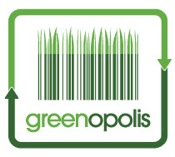Can Ethanol Crank Up Your Cocktail Glass?
In the future, your Friday night Seabreeze cocktail or that morning swig of Listerine could get its kick from distilled fuel ethenol.
Can Ethanol Crank Up Your Cocktail Glass?
According to a Daily Science report, an Iowa State University assistant professor wants to use fuel ethanol—and solid phase microextraction technology—to rev up your cocktail hour.
Well, let’s just say I’m skeptical. Not about the process, or about the idea of finding other uses for a sustainable fuel like ethanol. It’s the taste that worries me.
Once at a party, someone offered me a shot of Jägermeister. I though it tasted like gasoline, but I saw plenty of people enjoying it. And by enjoying it, I mean doing shots. I don’t think Jägermeister is really a sippin’ kind of drink. Anyway, I imagine ethanol-vodka would taste about as good as Jägermeister, too.
But ethanol is made from corn, and I like corn, especially when it’s wrapped around a dog, so I decided to investigate a little further.
And it’s true. Jacek Koziel, an Iowa State assistant professor of agricultural and biosystems engineering, is currently leading a research project attempting to turn fuel ethanol into food-grade ethanol alcohol.
By refining two complementary technologies, Kozeil and his team have found a way to efficiently purify and remove bad-tasting compounds from fuel ethanol.
This would be an economic plus for Iowa, since the state has fuel ethanol to spare. In fact, Iowa has 25 plants capable of producing 1.5 billion gallons of the fuel per year, according to the Iowa Corn Promotion Board. That makes Iowa the leading producer of ethanol in the United States.
Koziel and partner Hans van Leeuwen, vice president of MellO3z, are working to expand the ethanol purifying technology. The microextraction filtering process would allow for the manufacture of not only distilled spirits like vodka, but also other household items like cough syrup and mouthwash. The duo has received a $79,900 grant from the state's Grow Iowa Values Fund, to help with research costs.
Creating ethanol fuel and distilling drinkable alcohol are similar processes. The only exception is that alcohol used for fuel is made with less care and attention to purity than that made for human consumption. There are multiple distillations required to make consumer–grade alcohol, and this can raise cost by as much as 50 cents per gallon.
"If this is viable," Koziel said, "we are looking at adding a lot of value to relatively cheap fuel-grade ethanol."
But don’t start thinking about topping off your cocktail shaker at the gas pump just yet. There's still a lot of work to be done before you can splash some ethanol into your vodka-tonic.
And while it’s true that actually consuming corn is a novel idea lately, I hope for our sakes that Koziel and crew are hard at work on the most important part of the ethanol-liquor connection... the taste.
Greenopolis.com is dedicated to our users. We focus our attention on changing the world through recycling, waste-to-energy and conservation. We reward our users for their sustainable behaviors on our website, through our Greenopolis Tracking Stations and with curbside recycling programs.
GREENOP3943

